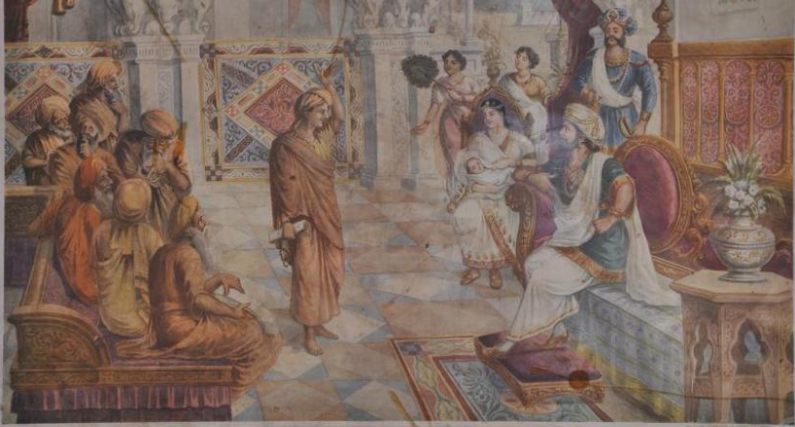
by Zabaan | Jun 10, 2015 | Ancient Greek, Classical languages, Sanskrit, Verb Conjugations
It will have escaped no one, that Germanic languages, such as English and German, have a very irregular conjugation of the verb to be. In English there is to be in the infinitive, but I am in the first person of the singular and then, out of nowhere, he/she is in the...

by Zabaan | Jun 6, 2015 | Ancient Greek, Case Systems, Classical languages, Sanskrit
In the late stone age, about seven or eight millennia ago, the speakers of the cluster of related dialects that later developed into Sanskrit, Greek, Latin and most of the modern European languages, lived in a habitat where man, today the most influential and...

by Zabaan | Jun 4, 2015 | Ancient Greek, Classical languages, Etymology, Literature, Old English, Sanskrit
The common word for king is राजा (rājā) in Sanskrit, βασιλευς (basileus) in ancient Greek and cyning in Old English. But in poetic diction these languages also all share a number of very similar circumlocutions, i.e. descriptive terms or so called speaking...
by Zabaan | Jun 3, 2015 | Ancient Greek, Classical languages, Literature, Sanskrit
In Greek literature the gods are known as the ἄμβροτοι (ambrotoi), the plural of ἄμβροτος (ambrotos), meaning immortal. Despite its different appearance, this word exactly corresponds to Sanskrit अमृतः (amṛtaḥ), which has retained a more original form, from the...
by Zabaan | May 31, 2015 | Ancient Greek, Classical languages, Literature, Sanskrit
What ancient Greek and Sanskrit can tell us about our thinking Apparently daunted by the task of representing such momentous events of history as the battle of Agincourt, the chorus of Shakespeare’s Henry V clamours desperately: “O for a Muse of fire, that...
by Zabaan | May 28, 2015 | Ancient Greek, Classical languages, Literature, Sanskrit
Both in the Vedic hymns and in the Homeric poems dawn is imagined as radiant young woman. The Vedic hymns describe her as she who, everyday anew, suffuses the world with vital energy and rouses its creatures form the inertia spread over the world by night. यूयं हि...




